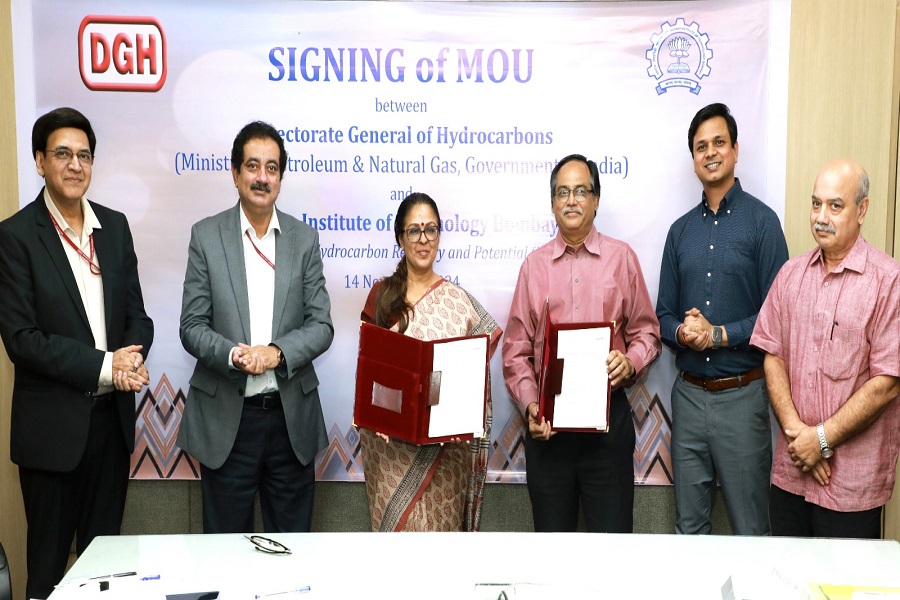
The Directorate General of Hydrocarbons under the Ministry of Petroleum and Natural Gas has joined hands with the Indian Institute of Technology Bombay, to foster research and development in enhanced hydrocarbon recovery and geologic carbon dioxide storage.
The Memorandum of Understanding signed between DGH and IIT Bombay aims to drive the advancement of new energy and decarbonisation technologies in India. This will be achieved via collaborative learning, joint research, innovative breakthroughs, and potential deployment.
This comes after the DGH set up a new department, Hydrocarbon Efficiency and New Energy — launched by the Minister of Petroleum and Natural Gas Hardeep Singh Puri at UrjaVarta 2024 organised in July.
Meanwhile, IIT Bombay has been spearheading a large number of initiatives in the petroleum sector, including upstream and downstream, conventional and unconventional.
The initiatives are undertaken through active collaboration with a large number of industries to accelerate the development and deployment of new technologies while also assisting them in meeting their net-zero goals.
Prof. Vikram Vishal, Convener, DST-National Centre of Excellence in CCUS, Department of Earth Sciences, IIT Bombay made a brief presentation on the scope of the MoU in carrying out site-specific studies on carbon dioxide storage with or without enhanced oil recovery, new geo-energy resources, building CCS regulatory frameworks and demonstration of the principles of CCS.
Dr. Govil also highlighted the critical need for collaboration to tackle the significant challenges facing the upstream hydrocarbon sector, especially as it undergoes transformation in response to energy transitions and net-zero goals.
"I greatly admire the dynamic research environment at IIT Bombay, and I firmly believe that this marks the beginning of an extraordinary collaboration model that will contribute to our efforts on enhancing energy access, efficiency, sustainability, and security," she stated.
Dr. Kaustav Nag, Additional Director General (Exploration) at DGH, emphasised the organisation's vision of leveraging data and expertise to support the geoscientific community, thereby strengthening efforts towards innovation and growth in the upstream hydrocarbon sector.
